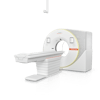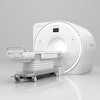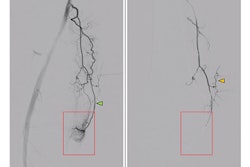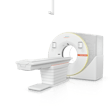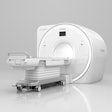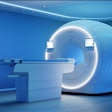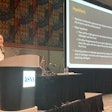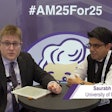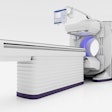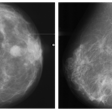Japan is adopting a more hands-on and proactive approach to minimizing MRI accidents and evaluating radiology AI, RSNA 2024 attendees will learn today at a special session that aims to shine a light on the country's healthcare system.
To maximize MRI safety in Japan, certification programs are offered to radiologists and radiographers to ensure they are well-versed in technology and safety procedures, Osamu Abe, MD, PhD, treasurer of the Japan Radiological Society (JRS) told AuntMinnie.com ahead of the session. Continuing education provides ongoing training to keep professionals updated with the latest advancements and practices, he said.
 Speakers and moderators at Tuesday's RSNA session. Photo courtesy of Yulika M. Ugajin, Japan Radiological Society.
Speakers and moderators at Tuesday's RSNA session. Photo courtesy of Yulika M. Ugajin, Japan Radiological Society.
The Japanese Society of Magnetic Resonance in Medicine (JSMRM) now maintains a database of MRI accidents (click top right button for English version). The Clinical MRI Medical Safety Information Subcommittee of the JSMRM opened a reporting website in May 2022, with the aim of collecting risk information in clinical settings and improving safety, but only 40 reports were received between 20 May 2022 and 5 August 2023. Incident reporting was made mandatory as a renewal requirement for MRI technicians in late August 2023, and as a result, 467 reports were received between September and December 2023, for a total of 507 reports.
Serious accidents (level 3 or higher) are likely to occur when moving or transferring patients in the examination room. Patient observation must not be neglected -- serious accidents tend to occur due to insufficient advance checks or carelessness, the JSMRM's 2023 report noted.
 JRS President Noriyuki Tomiyama, MD, PhD, is the moderator of Tuesday's RSNA session, "Japan Presents: Unique evolution and global influence of Japanese radiology." His co-moderator is Noriko Aida, MD, PhD.
JRS President Noriyuki Tomiyama, MD, PhD, is the moderator of Tuesday's RSNA session, "Japan Presents: Unique evolution and global influence of Japanese radiology." His co-moderator is Noriko Aida, MD, PhD.
Certification also plays a central role, Abe continued. The JRS has commissioned a program called the Accreditation Organization for Management of Radiological Imaging (AOMRI) that aims to certify facilities in compliance with the guidelines of the JRS and JSMRM, and it serves as the administrative office and manages a range of related tasks. "These tasks include financial processing and other administrative responsibilities essential for smooth operations," he said.
This system is helping to improve medical safety at hospitals throughout Japan, assist accredited facilities in obtaining additional fees for radiological management on imaging studies, contribute to revenue and the growth of radiologist staff, and boost research and development on database construction (such as AI-related research) and training and education programs.
"Additional fees apply for the radiological management of imaging studies for Diagnostic Imaging Management (DIM) levels 2, 3, and 4, as well as whole-body MRI for bone metastases from prostate cancer and liver MR elastography, which must be accredited by AOMRI," Abe pointed out.
Overall, the accreditation system promotes safety issues such as proper radiation exposure management, MRI safety, and AI accuracy in diagnostic imaging, and ensures that hospitals meet standards set by professional bodies. "It also enhances quality control by evaluating compliance with these guidelines, leading to safe, reliable, and standardized diagnostic practices," he said.
Medical Image Database
Another talk at the session will focus on the Japan-Medical Image Database for Data Science (J-MID), an ongoing project that collects radiology images and reports and maintains a database aimed at building a robust research infrastructure to support medical and engineering researchers.
 Toshiaki Akashi, MD, PhD.
Toshiaki Akashi, MD, PhD.
Established in 2018, J-MID now contains approximately 620 million images from 2 million studies), according to Toshiaki Akashi, MD, PhD, associate professor of radiology at Juntendo University, Bunkyō. Ten data-providing universities and five additional universities affiliated with the JRS have accounts on the J-MID cloud platform and use J-MID directly. Additionally, J-MID shares data with nine universities (faculties of engineering) through the Medical Big Data Cloud Platform constructed by the National Institute of Informatics. The organizers recently provided data to the Research Organization of Information and Systems to develop large language models.
"J-MID is collected using an opt-out consent model. Consequently, under Japanese law, the use of data is limited to academic research," he said. "To protect patients' personal information, data is provided in a pseudonymized form to members of the JRS or in an anonymized form to other researchers."
AI developers are sometimes responsible for the evaluation of products through postsales surveys, Akashi added. "AOMRI manages AI software sales in Japan, but it does not evaluate its accuracy. We propose using J-MID to conduct objective evaluations and have begun joint research with a certain company to develop such a system."
J-MID fundamentally contributes to the development of medical AI by providing radiological images and reports, he noted. "J-MID's main goals are to foster interdisciplinary research, promote collaboration, and serve as a valuable resource for objectively evaluating AI systems used in clinical practice."
Healthcare challenges
In spite of the healthcare system's many strengths, Japan faces a series of problems, according to Kei Yamada, MD, PhD, from the Department of Radiology at Kyoto Prefectural University of Medicine.
He said Japanese healthcare has several unique aspects, such as that the number of specialists is unmonitored, greatly limited career mobility exists, and it's feasible to become a cardiovascular surgeon without formal training. These peculiarities have contributed to the shortage of radiologists, he expanded in a 2023 article in the Korean Journal of Radiology.
 A slide that summarizes the RSNA 2024 presentation of Kei Yamada, MD.
A slide that summarizes the RSNA 2024 presentation of Kei Yamada, MD.
"Japanese citizens not only enjoy full coverage but also have 'free access,' meaning they can choose any medical facility regardless of their residence location," said Yamada, who is chair of the JRS International Liaison Committee. "Despite these generous benefits, Japan maintains a comparatively low health care cost compared to other advanced countries."
Today's session will wrap up with a talk on diversity and inclusion within the JRS.
"We have established a diversity quota in the election of board members to enhance inclusivity in decision-making, aiming to invigorate and ensure the society's sustainability," said Dr. Noriko Oyama-Manabe, PhD, chair of the JRS Diversity and Work Style Reform Committee. "To further reinforce these efforts, we have introduced an 'Encouragement Award' and we actively advance the academic careers of women and young radiologists by appointing them as session chairs and speakers at the society's annual meetings."
The session will take place in Room E352 between 3 p.m. and 4 p.m. Central Standard Time. Further details are available here.

